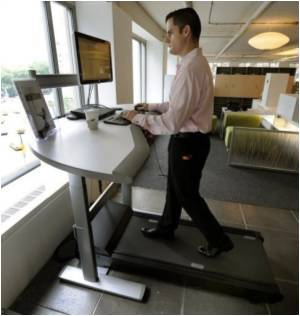The classic saying "Men are from Mars and women are from Venus" only shows how different the two sexes are, be it in their looks, behavior or outlooks. And when it comes to the burning topic of fitness and losing weight, it just looks like the cards are somehow stacked against the fairer sex, and men really do have an upper hand in losing weight more easily as compared to women.
Many women express their frustration at being unable to lose weight despite hitting the gym and exercising very hard and making significant dietary changes. Their male counterparts on the other hand appear to drop kilos just by making minimal lifestyle changes. It just doesn’t seem fair!Jill Kanaley, a professor in the Department of Nutrition and Exercise at the University of Missouri, Columbia, and her associates conducted a study with 22 obese men and women with type 2 diabetes and monitored their hemodynamic responses in the form of heart rate and blood pressure. In this study, published in the journal Metabolism, the scientists put obese men and women on the same fitness program. The study uncovered a discrepancy between the genders when it comes to exercise, obesity and type-2 diabetes.
To monitor cardiovascular responses, the individuals completed an isometric handgrip test, which involves continually and forcefully squeezing an object for a few minutes at the beginning and at the end of a well chalked out 16-week aerobic exercise program.
The participants were asked to follow a structured program of aerobic (i.e. cardiovascular) exercise for 16 weeks. Based on each individual’s ability, they worked at an effort of 65 per cent. The researchers found that though everyone exercised at relatively the same speed, men got far more benefit from the exercise than women.
Thus the authors concluded that obese women with type 2 diabetes need longer duration or higher intensity of exercise compared with obese men to reap similar benefits.
Kanaley also said that emphasis should be placed at how fast the heart beats during physical exercise as well as how long it takes for the cardiovascular function to return to normal after the exercise routine. It is of paramount importance to monitor heart recovery rates just as it is important to monitor how high the heart rates get during exercise.
Similarly, blood pressure, which generally rises during an exercise routine, should bounce back to normal relatively quickly after stopping exercise. The study found that the recovery rate for women was not as rapid as for men.
Men and women vary in the type of fat their bodies are made up of. While women tend to have more subcutaneous fat, men have more of visceral fat. Women tend to put on the extra pounds around their hips and thighs (pear shape) while men tend to pile it on around their abdomen (apple shape). Though visceral fat is more dangerous since it is linked to heart disease, diabetes and stroke, it is metabolized much faster than subcutaneous fat.
Women have more estrogen than men. Estrogen increases storage of body fat. They store more body fat for proper reproduction.
Men tend to have more muscle mass and it is a known fact that muscle tissue burns more energy than fat tissues. Therefore, men naturally burn more calories than women even when they are physically inactive or in a resting state.
Women may have a lower tolerance for exercise. Women have smaller lung capacity than men, which can make women feel as though they are working harder than men even when they are working at the same level. Men also have higher proportion of hemoglobin carrying oxygen to different parts of the body, which is vital during exercise.
Women go through hormonal changes that can slow weight loss. Menopause is one of them. In addition, some women also get experience PMS which can exacerbate cravings for high calorie foods!
Despite all odds, women should not lose hope. Women need to think smartly about how to make their bodies work for them, by taking advantage of the connection between muscle mass and metabolism, or making note of the triggers for emotional eating and minimizing them. To get the best results from weight-loss efforts, they should maximize fat loss and minimize muscle loss. The best way to do that is to include adequate weight training in their exercise routine.
To sum it up, whatever the differences maybe in the genders concerning weight loss, it totally depends on the will power of an individual to actively pursue their own weight loss goals by maintaining a healthy diet and a rigid exercise program.
Source-Medindia









